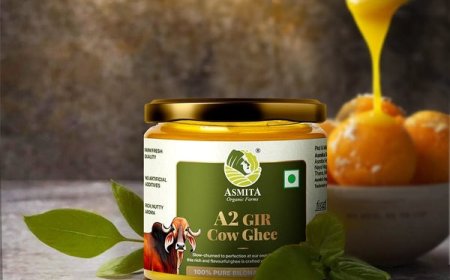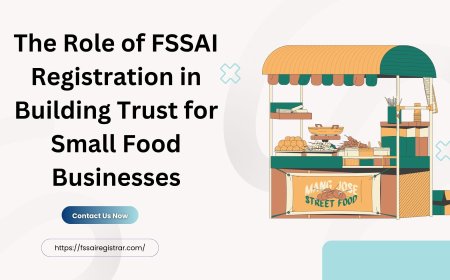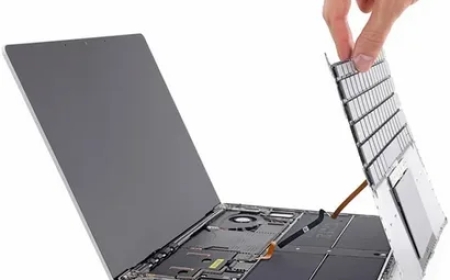How to Join the Shop Small Tulsa Holiday Market
How to Join the Shop Small Tulsa Holiday Market The Shop Small Tulsa Holiday Market is more than just a seasonal shopping event—it’s a community-driven initiative designed to uplift local artisans, small business owners, and independent makers in the Tulsa area. As part of the national Shop Small movement, this market connects consumers with authentic, handcrafted, and locally sourced goods during
How to Join the Shop Small Tulsa Holiday Market
The Shop Small Tulsa Holiday Market is more than just a seasonal shopping event—it’s a community-driven initiative designed to uplift local artisans, small business owners, and independent makers in the Tulsa area. As part of the national Shop Small movement, this market connects consumers with authentic, handcrafted, and locally sourced goods during the critical holiday shopping season. For entrepreneurs, artisans, and small business operators, joining the Shop Small Tulsa Holiday Market offers unparalleled exposure, direct customer engagement, and a powerful platform to grow brand awareness in a supportive, curated environment.
Unlike large retail chains or impersonal e-commerce platforms, this market thrives on personal connection. Shoppers come not just to buy, but to meet the people behind the products—to hear the story, understand the craftsmanship, and support the local economy. For vendors, this means more than sales; it means building lasting relationships, collecting valuable customer feedback, and establishing a loyal regional customer base.
Participation in the Shop Small Tulsa Holiday Market is competitive, selective, and highly rewarding. With limited vendor spots and growing demand from both shoppers and entrepreneurs, understanding the full process—from application to booth setup—is essential. This guide provides a comprehensive, step-by-step roadmap to help you successfully join, prepare for, and maximize your impact at the market. Whether you’re a first-time vendor or an experienced maker looking to expand your reach, this tutorial will equip you with the knowledge, tools, and strategies to stand out and succeed.
Step-by-Step Guide
Step 1: Understand the Market’s Mission and Eligibility
Before you begin the application process, it’s critical to understand the core values of the Shop Small Tulsa Holiday Market. The event is specifically designed for small, independent businesses headquartered in or serving the Tulsa metropolitan area. This includes artisans, crafters, food producers, designers, florists, jewelry makers, vintage dealers, and other niche retailers who create or curate products with a local connection.
Eligibility is not based on revenue size alone. Instead, the selection committee prioritizes businesses that demonstrate authenticity, originality, and a clear local identity. If you source materials from outside the region but assemble or customize products in Tulsa, you may still qualify. However, businesses that primarily resell mass-produced items from national distributors are typically not accepted. The goal is to highlight unique, handmade, or locally sourced goods that cannot be found in big-box stores.
Review the official guidelines on the Shop Small Tulsa website to confirm your business category aligns with their vision. If you’re unsure, reach out via their public contact form for clarification—do not assume eligibility based on similar markets in other cities.
Step 2: Prepare Your Business Documentation
Once you’ve confirmed your eligibility, gather the necessary documentation to support your application. This typically includes:
- A valid business license or registration with the State of Oklahoma
- Proof of local presence (e.g., a Tulsa-based address, utility bill, or lease agreement)
- Photos of your products (high-resolution, well-lit, and professionally styled)
- A brief business description (100–150 words) explaining your mission, process, and local impact
- Links to your website, Instagram, or Etsy shop (if applicable)
- Any relevant permits (e.g., food handler’s permit if selling consumables)
Organize these materials in a single digital folder. Use clear file names such as “BusinessLicense_JaneDoeTulsa.pdf” and “ProductPhotos_JewelryCollection_2024.jpg.” A well-organized application reflects professionalism and attention to detail—qualities the selection committee values.
Step 3: Complete the Online Application
The Shop Small Tulsa Holiday Market application opens annually between late June and early August. The process is entirely online and hosted on a dedicated platform managed by the Tulsa Small Business Alliance. Visit www.shopsmalltulsa.org/application to access the form.
The application includes several sections:
- Business Information: Legal name, owner name, contact details, and physical location
- Product Category: Select from predefined categories (e.g., Handmade Jewelry, Home Goods, Art Prints, Gourmet Foods)
- Product Description: Detail what you sell, materials used, production process, and what makes your product unique
- Visual Portfolio: Upload 5–8 high-quality images of your products, packaging, and workspace
- Previous Market Experience: List any other local markets or pop-ups you’ve participated in
- Booth Requirements: Indicate your preferred booth size (6ft, 8ft, or 10ft) and any special needs (electricity, Wi-Fi, table height)
- Statement of Intent: A short paragraph explaining why you want to join and how you’ll contribute to the community
Be specific and authentic in your responses. Avoid generic phrases like “I love making things.” Instead, say: “I hand-sculpt ceramic mugs using locally sourced clay from the Arkansas River basin, firing each piece in a solar-powered kiln in my East Tulsa studio.”
Proofread everything. Typos or vague answers are common reasons for application rejection, even among qualified vendors.
Step 4: Pay the Application Fee
A non-refundable application fee of $25 is required to submit your application. This fee helps cover administrative costs and ensures serious applicants. Payment is processed securely via the application portal using credit or debit card.
Do not delay payment. Applications are reviewed in the order they are completed. Late payments may result in your submission being moved to a waitlist or rejected outright.
If cost is a barrier, inquire about fee waivers. The Tulsa Small Business Alliance offers limited financial assistance to qualifying low-income entrepreneurs, BIPOC-owned businesses, and veterans. Submit a brief request along with your application explaining your situation.
Step 5: Await Selection Notification
Applications close in early August. The selection committee meets throughout mid-August to review submissions based on originality, local impact, product quality, and diversity of offerings. Decisions are typically emailed between August 20 and August 30.
You will receive one of three outcomes:
- Accepted: You’ve been granted a booth. Proceed to Step 6.
- Waitlisted: You’re in the running if spots open due to cancellations. Monitor your email closely and respond promptly to any follow-up requests.
- Not Selected: Unfortunately, your application was not chosen this year. Review the feedback provided (if any) and consider reapplying next season.
If accepted, you’ll receive a welcome packet with vendor guidelines, booth assignment, and next steps. Do not assume your spot until you’ve received official confirmation and signed your vendor agreement.
Step 6: Sign Vendor Agreement and Pay Booth Fee
Upon acceptance, you’ll be required to sign a digital vendor agreement outlining your responsibilities, event rules, insurance requirements, and cancellation policy. Read this document carefully. It includes critical information about setup times, prohibited items, waste disposal, and customer interaction expectations.
Next, pay your booth fee. Fees vary by size:
- 6ft booth: $125
- 8ft booth: $175
- 10ft booth: $225
Booth fees cover your space, a table, two chairs, a branded banner, and inclusion in the official market map and promotional materials. Payment is due within seven days of acceptance to secure your spot. Late payments may result in forfeiture of your booth.
Once paid, you’ll receive a vendor confirmation email with your booth number, setup instructions, and a link to the vendor portal where you can download marketing assets and update your product list.
Step 7: Prepare Your Booth and Inventory
Now begins the most exciting—and often most stressful—phase: preparation. Your booth is your storefront for the entire event. It must be visually compelling, organized, and reflective of your brand.
Consider the following:
- Layout: Use tiered shelves, risers, or crates to create visual interest. Avoid clutter. Leave space for customers to browse comfortably.
- Signage: Display your business name, logo, and tagline clearly. Include a short description of your products and what makes them special.
- Pricing: Label every item clearly. Use small, elegant price tags. Avoid handwritten signs unless they’re part of your brand aesthetic.
- Payment Options: Accept multiple forms of payment: credit/debit cards (via Square or PayPal Zettle), cash, and digital wallets. Do not rely on cash only.
- Inventory: Bring 2–3x more inventory than you expect to sell. Popular items often sell out within hours. Track best-sellers from past events and prioritize those.
- Branding: Include business cards, flyers, or small freebies (e.g., stickers, samples) to encourage follow-up engagement.
Practice setting up your booth at home. Time yourself. Aim to complete setup in under 45 minutes. You’ll be grateful for this rehearsal when you’re racing against the clock on event day.
Step 8: Attend Vendor Orientation
All accepted vendors are required to attend a mandatory virtual orientation session held in early November. This 60-minute session covers:
- Event schedule and timeline
- Booth location map and parking instructions
- Security and safety protocols
- Customer service expectations
- How to use the market’s digital check-in system
- Q&A with past vendors
Attendance is tracked. Failure to attend may result in removal from the event. Recordings are not shared, so mark your calendar and set a reminder. Prepare your questions in advance.
Step 9: Set Up on Event Day
The Shop Small Tulsa Holiday Market typically runs over two weekends in early December. Vendor setup begins at 7:00 AM on the first day of your assigned weekend. Arrive early—traffic and parking can be congested.
Bring:
- Your vendor badge (sent via email)
- Photo ID
- Booth supplies (tablecloth, lights, extension cords, tape, scissors, trash bags)
- Water, snacks, and comfortable shoes
- A fully charged phone and portable charger
Follow the marked pathways to your assigned booth. Do not move tables or signage without approval. Once set up, take a photo of your booth for your records and social media.
Check in with the vendor coordinator at the welcome tent to confirm your presence and receive your event packet, which includes a schedule, map, and emergency contacts.
Step 10: Engage with Shoppers and Follow Up
During the market, your primary goal is not just to sell, but to connect. Greet every visitor with a smile. Ask questions. Share your story. People remember the person behind the product more than the product itself.
Collect email addresses or phone numbers (with permission) for future marketing. Offer a discount code for your online store or invite them to follow you on social media. Many shoppers will return to your website after the event.
At the end of each day, count your sales, note which items sold fastest, and jot down customer feedback. This data is invaluable for future events and product development.
After the market, send personalized thank-you emails to customers who made purchases. Tag the Shop Small Tulsa Holiday Market in your social media posts. Use the official event hashtag: ShopSmallTulsa
.
Best Practices
1. Prioritize Authenticity Over Perfection
Shoppers at the Shop Small Tulsa Holiday Market are drawn to genuine stories. A slightly imperfect handmade item with a heartfelt backstory resonates more than a mass-produced product with flawless packaging. Don’t be afraid to show your process—display tools, sketches, or work-in-progress pieces. It humanizes your brand.
2. Offer a Signature Item
Every successful vendor has one standout product—a “hero item” that becomes the reason people seek them out. This could be a limited-edition ornament, a signature spice blend, or a custom-engraved keychain. Highlight it on your signage and encourage customers to “grab it before it’s gone.”
3. Create a Seamless Checkout Experience
Long lines frustrate customers and reduce sales. Use a reliable mobile payment system like Square or PayPal Zettle. Have change ready for cash transactions. Offer gift wrapping for a small fee—it increases average transaction value and encourages gifting.
4. Collaborate with Neighboring Vendors
Build relationships with vendors near you. Cross-promote each other’s products. Share customer leads. A jewelry maker might recommend a candle maker whose scents complement her pieces. These alliances enhance the overall experience and create a sense of community.
5. Use Social Media Strategically
Start promoting your participation two months before the event. Post behind-the-scenes content: your workspace, packaging process, product testing. Use local hashtags like
TulsaMade, #SupportLocalTulsa, and #ShopSmallTulsa. Tag the official market account—they often repost vendor content.
6. Prepare for Weather and Foot Traffic
The market is held indoors, but parking and entry areas may be exposed. Bring a small umbrella or tote for your personal items. Anticipate crowds on weekends—especially Saturdays. Have a plan for managing lines and keeping your booth tidy throughout the day.
7. Track Your ROI
After the event, calculate your return on investment: total sales minus booth fee, travel, materials, and time. If your ROI is positive, plan to return next year. If not, analyze why—was your pricing off? Was your product not a good fit? Use this data to improve.
8. Stay Compliant and Professional
Never sell prohibited items: alcohol, tobacco, weapons, or counterfeit goods. Follow all local health codes if selling food. Treat customers and staff with respect. Your reputation as a vendor matters—word spreads quickly in the local maker community.
Tools and Resources
Essential Tools for Vendors
- Square or PayPal Zettle: Reliable, low-cost card readers with instant deposits
- Portable LED Lights: Essential for bright, flattering product displays
- Acrylic Display Risers: Create visual hierarchy and maximize space
- Reusable Tote Bags: Branded bags serve as walking advertisements
- QR Code Generator (e.g., QRCode Monkey): Link to your website, Instagram, or newsletter signup
- Google Sheets or Notion: Track inventory, sales, and customer contacts
- Canva: Design professional signage, price tags, and social media graphics
Free and Low-Cost Resources
- Tulsa Small Business Alliance: Offers free workshops on branding, pricing, and social media for local vendors
- Oklahoma Small Business Development Center (SBDC): Free one-on-one consulting for business planning and financial modeling
- Library of Congress Digital Collections: Free high-resolution images of historical Tulsa landmarks for use in themed product designs
- Free Stock Photos (Unsplash, Pexels): Use for website and social media if you lack professional product photography
- Local Makers Facebook Group: Join “Tulsa Artisans & Makers” for peer advice, swap opportunities, and event announcements
Marketing Resources
- Shop Small Tulsa Official Media Kit: Download logos, banners, and sample captions from the vendor portal
- Canva Templates for Markets: Search “Holiday Market Social Media Post” for pre-designed templates
- Mailchimp (Free Plan): Send post-event thank-you emails to customers
- Buffer or Hootsuite: Schedule social media posts in advance to save time
Real Examples
Example 1: The Clay & Copper Studio
Jessica, a ceramic artist from Midtown Tulsa, applied to the Shop Small Tulsa Holiday Market for the first time in 2022. She focused her application on her use of reclaimed clay from abandoned kiln sites in the Arkansas River Valley. Her photos showed her hands shaping pots, the kiln firing, and the final pieces displayed on wooden shelves in her sunlit studio.
She was accepted and chose an 8ft booth. Her signature item was a set of three mugs, each glazed with a different color representing Tulsa’s sunset hues. She offered a free coaster with every purchase and included a small card explaining the clay’s origin.
On the first day, she sold out of mugs by noon. She restocked from her back inventory and offered pre-orders for January delivery. By the end of the weekend, she made $2,100 in sales and gained 180 new Instagram followers. She returned in 2023 and doubled her revenue.
Example 2: Prairie Honey Co.
Mark and Lila, a husband-and-wife team from Broken Arrow, produce raw, unfiltered honey from hives located on family-owned land. Their application emphasized sustainability, bee conservation, and the unique floral profiles of Oklahoma wildflowers.
They applied as a food vendor and submitted their food handler’s permit. Their booth featured small jars arranged like a rainbow, with tasting samples on wooden spoons. They offered a “Honey of the Month” subscription box for purchase.
They partnered with a nearby candle maker who created honey-scented candles. They cross-promoted and saw a 40% increase in sales for both businesses. They collected 92 email addresses and now send a monthly newsletter with recipes and apiary updates.
Example 3: The Vintage Typewriter Co.
Derek, a collector and restorer of 1920s–1950s typewriters, applied with a unique proposition: he would let customers type a short message on a restored machine and receive a printed keepsake.
His application stood out because of the experiential element. He included a short video of a child typing “I love Mom” on a 1937 Underwood. The committee loved the idea.
His booth became one of the most popular spots at the market. Families lined up to write notes, and many purchased typewriters as heirlooms. He sold six machines over the weekend and received two custom restoration commissions.
His takeaway? “People don’t just want to buy something—they want to feel something. Make your booth an experience.”
FAQs
Can I apply if I’m not based in Tulsa but ship to customers there?
No. The Shop Small Tulsa Holiday Market requires vendors to have a physical presence in the Tulsa metropolitan area. This includes having a studio, workshop, or storefront located within the city limits or surrounding counties (Tulsa, Rogers, Wagoner, Okmulgee, and Creek). Online-only businesses without a local base are not eligible.
What if I sell food? Do I need special permits?
Yes. All food vendors must hold a valid Oklahoma Department of Health Food Handler’s Permit. If you’re selling potentially hazardous foods (e.g., dairy, meat, baked goods with cream fillings), you may need a mobile food vendor license. Contact the Tulsa Health Department for guidance. Non-perishable items like jams, dried herbs, and baked goods without refrigeration are generally easier to approve.
Can I share a booth with another vendor?
Yes, but only if both parties apply together as a single business entity. Two separate businesses cannot split a booth unless approved in advance by the market organizers. Shared booths are rare and require a joint application explaining the partnership.
What happens if I need to cancel after paying the booth fee?
Booth fees are non-refundable. However, if you cancel at least 30 days before the event, you may be eligible for a credit toward next year’s application fee. Cancellations within 30 days forfeit all fees. In case of emergency (illness, family hardship), contact the vendor coordinator immediately—exceptions are considered on a case-by-case basis.
Do I need liability insurance?
Yes. All vendors must carry general liability insurance with a minimum of $100,000 coverage naming the Tulsa Small Business Alliance as additionally insured. Proof of insurance must be submitted before the event. Many vendors obtain short-term event insurance through providers like Thimble or Hiscox for under $50.
Can I sell digital products or services?
No. The market is designed for physical, tangible goods. Digital downloads, online courses, or services like photography or graphic design are not permitted. However, you may offer physical items that include digital components (e.g., a printed journal with a QR code to a downloadable playlist).
How are booth locations assigned?
Booths are assigned based on product category, vendor experience, and booth size to ensure a balanced and diverse layout. First-time vendors are typically placed in high-traffic areas near entrances or food vendors. Repeat vendors may be placed in quieter zones to encourage exploration. You may request a preferred location, but assignments are final.
Can I bring my children or pets to the market?
Children are allowed but must be supervised at all times. Pets are not permitted, except for certified service animals. The event is crowded and noisy, and many vendors work with food or fragile items—keeping the environment safe and clean is a priority.
Will I be featured in the market’s promotional materials?
Yes. All accepted vendors are included in the official digital and printed market map, social media campaigns, and local press releases. You’ll also receive a vendor spotlight on the Shop Small Tulsa website. Be sure to provide a high-quality headshot and bio during the vendor portal setup.
Conclusion
Joining the Shop Small Tulsa Holiday Market is more than a transaction—it’s a commitment to community, creativity, and economic resilience. For small business owners and artisans, this event offers a rare opportunity to connect directly with customers who value authenticity over convenience, craftsmanship over mass production, and local roots over global corporations.
The process is deliberate, competitive, and demanding—but the rewards are profound. From the first time a stranger tells you how much they love your handmade soap to the moment you see your product on a neighbor’s mantle during the holidays, the impact ripples far beyond a single weekend.
By following the steps outlined in this guide—preparing thoroughly, engaging authentically, and leveraging available resources—you position yourself not just to participate, but to thrive. The Shop Small Tulsa Holiday Market isn’t just a place to sell. It’s a platform to tell your story, to build a legacy, and to become part of something bigger than yourself.
Apply with purpose. Prepare with care. Show up with heart. And remember: in a world of algorithms and automation, nothing replaces the power of a human connection made face-to-face, hand-to-hand, in the heart of Tulsa.



































